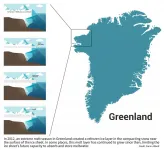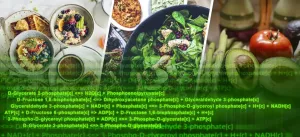INFORMATION:
About Mayo Clinic
Mayo Clinic is a nonprofit organization committed to innovation in clinical practice, education and research, and providing compassion, expertise and answers to everyone who needs healing. Visit the Mayo Clinic News Network for additional Mayo Clinic news. For information on COVID-19, including Mayo Clinic's Coronavirus Map tracking tool, which has 14-day forecasting on COVID-19 trends, visit the Mayo Clinic COVID-19 Resource Center.
Mayo study finds colon cancer driven by hereditary gene mutations in 1 in 6 patients
2021-04-20
(Press-News.org) ROCHESTER, Minn. -- A new Mayo Clinic study bolsters evidence that colorectal cancer is often imprinted in family genes and passed on from one generation to the next.
In the study, published in Clinical Gastroenterology and Hepatology, researchers within the Mayo Clinic Center for Individualized Medicine found 1 in 6 patients with colorectal cancer had an inherited cancer-related gene mutation, which likely predisposed them to the disease. In addition, the researchers discovered that 60% of these cases would not have been detected if relying on a standard guideline-based approach.
"We found that 15.5% of the 361 patients with colorectal cancer had an inherited mutation in a gene associated with the development of their cancer," says Niloy Jewel Samadder, M.D., a Mayo Clinic gastroenterologist and hepatologist, who is the study's senior author. "We also found that over 1 in 10 of these patients had modifications in their medical or surgical therapy based on the genetic findings."
The patients were tested with a sequencing panel that included more than 80 cancer-causing or predisposing genes. In comparison, standard panels for colorectal cancer only include 20 or fewer genes.
The patients with colorectal cancer were part of a larger cohort of 3,000 patients involved in the two-year Interrogating Cancer Etiology Using Proactive Genetic Testing (INTERCEPT) study, and were newly diagnosed with various cancers at Mayo Clinic Cancer Center locations in Arizona, Florida and Minnesota.
"Through the INTERCEPT study, the Center for Individualized Medicine has addressed a question of relevance to all cancer patients," says Aleksandar Sekulic, M.D., Ph.D., associate director of the Center. "The findings published by Dr. Samadder and colleagues shed a new light on the role our genes play in the development of colon cancer."
The colorectal cancer study emphasizes that uncovering hidden inherited genetic mutations using a universal testing approach and broader gene panels could lead to opportunities for cancer management in families and targeted cancer therapies that can save lives.
Colorectal cancer is the second leading cause of cancer death in the U.S., according to the American Cancer Society. Unlike many other cancers that are difficult to uncover in early stages, colon cancer begins as a polyp, which can be detected in a colonoscopy screening and removed to prevent cancer from developing and spreading. The American Cancer Society recommends people at average risk of colorectal cancer start regular screenings at age 45.
"Colorectal cancer screening is an important modality to prevent this deadly disease and many resultant unnecessary deaths," Dr. Samadder says. "Screening can be performed with a colonoscopy, stool tests or even specialized CT scans."
In the study, Dr. Samadder and his team examined gene variants (mutations) with which the patient was born and that predisposed them to developing cancer. Mutations are abnormal changes in the DNA of a gene. A gene mutation can affect the cell in many ways, including interfering with proteins or causing a gene to be activated.
Although many mutations that cause colorectal cancer happen by chance in a single cell -- including from environmental factors, diet, smoking and alcohol use -- the study confirms many are inherited mutations that set off a cycle of events that can lead to cancer.
"Though the most common mutations were found in genes typically associated with colorectal cancer, we found that a substantial number of mutations were present in genes typically associated with breast and ovarian cancer," Dr. Samadder explains. "This may lead to novel targeted therapies based on the cancer's unique genetic basis. For example, where a breast cancer drug can be used in a patient with colon cancer."
Equally important to the discovery of a patient's inherited cancer mutation is the potential for patients to share the heritable cause of their disease with their blood relatives, allowing family members to pursue care for earlier disease detection and cancer management.
"The power of genetics is that we can foresee the cancer that will develop in other family members," Dr. Samadder says. "This can allow us to target cancer screening to those high-risk individuals and hopefully prevent cancer altogether in the next generation of the family."
In the study, all blood-related family members of patients found to have a genetic mutation were offered free genetic testing. Overall, just 16% of these family members underwent testing, which may suggest there are nonfinancial barriers to genetic testing.
Dr. Samadder says the next steps will be to incorporate the study findings into the care of all patients with cancer at Mayo Clinic.
"Steps are being taken to ensure all patients are offered genomic sequencing to better understand the genes that led to the development of their cancer, and how to precisely target treatment and improve survival," Dr. Samadder says.
Genetic sequencing, deletion and duplication analysis, and variant interpretation were performed at Invitae Corp. in San Francisco. Dr. Nussbaum is the chief medical officer of Invitae. Support for this project was provided by the Mayo Transform the Practice Grant, Mayo Clinic Center for Individualized Medicine, Desert Mountain Members' CARE Foundation, and David and Twila Woods Foundation.
ELSE PRESS RELEASES FROM THIS DATE:
Can extreme melt destabilize ice sheets?
2021-04-20
Nearly a decade ago, global news outlets reported vast ice melt in the Arctic as sapphire lakes glimmered across the previously frozen Greenland Ice Sheet, one of the most important contributors to sea-level rise. Now researchers have revealed the long-term impact of that extreme melt.
Using a new approach to ice-penetrating radar data, Stanford University scientists show that this melting left behind a contiguous layer of refrozen ice inside the snowpack, including near the middle of the ice sheet where surface melting is usually minimal. Most importantly, the formation of the melt layer changed the ice sheet's behavior by reducing its ability to store future meltwater. The research appears in Nature Communications ...
Study helps unravel why pregnant women develop heart failure similar to older patients
2021-04-20
PHILADELPHIA-- Researchers at Penn Medicine have identified more genetic mutations that strongly predispose younger, otherwise healthy women to peripartum cardiomyopathy (PPCM), a rare condition characterized by weakness of the heart muscle that begins sometime during the final month of pregnancy through five months after delivery. PPCM can cause severe heart failure and often leads to lifelong heart failure and even death. The study is published today in Circulation.
PPCM affects women in one out of every 2,000 deliveries worldwide, with about a third of those women developing heart failure for life, and about five percent of them ...
Predicting the onset of diseases
2021-04-20
A myriad of genetic factors can influence the onset of diseases like high blood pressure, heart diseases, and type 2 diabetes. If we were to know how the DNA influences the risk of developing such diseases, we, we could shift from reactive to more preventive care, not only improving patients' quality of living but also saving money in the health system. However, tracing the connections between the DNA and disease onset requires solid statistical models that reliably work on very large datasets of several hundred thousand patients.
Matthew Robinson, Assistant Professor at the Institute ...
Gut's immune response in COVID-19 may not provide efficient protection of other organs
2021-04-20
Our guts may not provide long-lasting systemic immunity from COVID-19, which is where immune cells circulate through the body to provide protection to other organs, finds a new study published in Frontiers in Immunology. An analysis of blood samples from patients infected with SARS-CoV-2 revealed that immune cells circulating in the blood, which were triggered by the gut's response to infection, were limited in number when compared to immune cells that had been triggered elsewhere in the body.
"Although the gut is considered an important portal of entry for the virus, the immune response in the blood of COVID-19 patients is dominated by ...
Understanding spoilage and quality issues may improve American artisan cheesemaking industry
2021-04-20
Philadelphia, April 20, 2021 - American artisan cheese has become increasingly popular over the past few decades. Understanding spoilage concerns and the financial consequences of defects can improve quality, profitability, and sustainability in the American artisan cheesemaking industry. In an article appearing in the END ...
Rock glaciers will slow Himalayan ice melt
2021-04-20
Some Himalayan glaciers are more resilient to global warming than previously predicted, new research suggests.
Rock glaciers are similar to "true" ice glaciers in that they are mixtures of ice and rock that move downhill by gravity - but the enhanced insulation provided by surface rock debris means rock glaciers will melt more slowly as temperatures rise.
Rock glaciers have generally been overlooked in studies about the future of Himalayan ice.
The new study, led by Dr Darren Jones at the University of Exeter, shows rock glaciers already account for about one twenty-fifth of Himalayan ...
Designing healthy diets - with computer analysis
2021-04-20
A new mathematical model for the interaction of bacteria in the gut could help design new probiotics and specially tailored diets to prevent diseases. The research, from Chalmers University of Technology in Sweden, was recently published in the journal PNAS.
"Intestinal bacteria have an important role to play in health and the development of diseases, and our new mathematical model could be extremely helpful in these areas," says Jens Nielsen, Professor of Systems Biology at Chalmers, who led the research.
The new paper describes how the mathematical model performed when making predictions ...
Better marketing for a better world
2021-04-20
Newly published research contained in the Special Issue of the Journal of Marketing features fourteen global author teams focused on the topic of Better Marketing for a Better World. Edited by Rajesh Chandy (London Business School), Gita Johar (Columbia University), Christine Moorman (Duke University), and John Roberts (University of New South Wales), this Special Issue brings together wide-ranging research to assess, illuminate, and debate whether, when, and how marketing contributes to a better world.
The Special Issue is built on the thesis that marketing has the power to improve lives, sustain livelihoods, strengthen societies, and benefit the world at large. It calls for a renewed ...
Efforts to reduce opioid prescriptions may be hindering end-of-life pain management
2021-04-20
PORTLAND, Ore. - Policies designed to prevent the misuse of opioids may have the unintended side effect of limiting access to the pain-relieving drugs by terminally ill patients nearing the end of their life, new research led by the Oregon State University College of Pharmacy suggests.
A study of more than 2,500 hospital patients discharged to hospice care over a nine-year period showed a decreasing trend of opioid prescriptions as well as an increase in the prescribing of less powerful, non-opioid analgesics, meaning some of those patients might have been undertreated for their pain compared to similar patients in prior years.
The findings, published in the Journal of Pain and Symptom Management, are an important step toward optimizing ...
Individualized training is key for autistic adolescents learning to drive
2021-04-20
Philadelphia, April 20, 2021 - A collaborative study from the Center for Injury Research and Prevention (CIRP) and the Center for Autism Research (CAR) at Children's Hospital of Philadelphia (CHOP) identified clear strengths and a series of specific challenges autistic adolescents experience while learning to drive. The findings were recently published by the American Journal of Occupational Therapy.
Researchers conducted in-depth interviews with 17 specialized driving instructors who were trained as occupational therapists, driving rehabilitation specialists, or licensed driving instructors and who had completed additional training related ...




